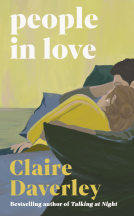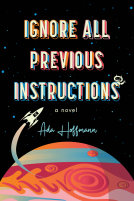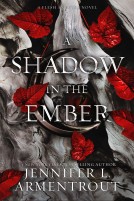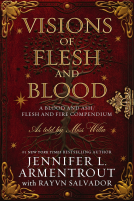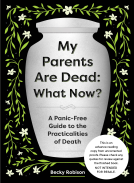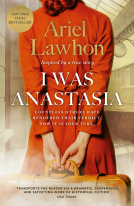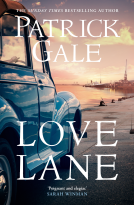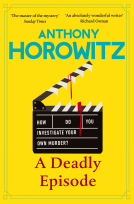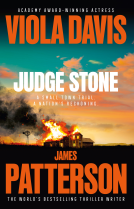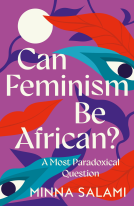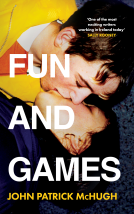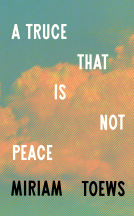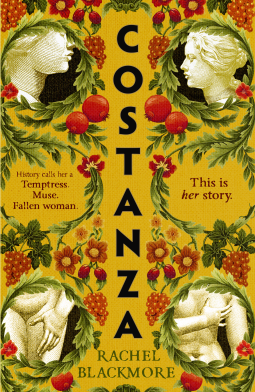
Costanza
'Striking fictional retelling of this true history' – Sunday Times
by Rachel Blackmore
This title was previously available on NetGalley and is now archived.
Send NetGalley books directly to your Kindle or Kindle app
1
To read on a Kindle or Kindle app, please add kindle@netgalley.com as an approved email address to receive files in your Amazon account. Click here for step-by-step instructions.
2
Also find your Kindle email address within your Amazon account, and enter it here.
Pub Date 1 Aug 2024 | Archive Date 1 Aug 2024
Dialogue Books | Renegade Books
Talking about this book? Use #Costanza #NetGalley. More hashtag tips!
Description
'In Blackmore's striking fictional retelling of this true history, Costanza refuses to accept a fate as nothing more than a victim of male exploitation' SUNDAY TIMES, BEST HISTORICAL FICTION
'Emotionally intense' DAILY MAIL
'A stunning, visceral portrait of a woman and her life and a story as relevant now as it was then. I was gripped' JENNIE GODFREY
'Wonderful... This novel took over my life for the time I was buried in it. Powerful and deeply affecting' PATERSON JOSEPH
Rome, 1636: In the scorched city of Rome, the cobbled streets hum with gossip and sin...
Costanza Piccolomini is a respectable young wife - until she meets Gianlorenzo Bernini, the famed sculptor and star of Roman society, whose jet-black gaze matches his dark temper. From the second they set eyes upon each other, a fatal attraction is born.
Their secret love burns with a passion that consumes them. But with every stolen kiss and illicit tryst, Costanza's reputation is at stake. Meanwhile, Bernini has a dangerous desire: he wants to make Costanza immortal. He vows to possess her not just in body and soul, but also in marble.
When Bernini unveils his sculpture of Costanza, she is exposed as his lover, marking the undoing of their affair - and the beginning of a scandal which will rock Roman society. For Bernini would rather destroy Costanza than let her go.
Betrayed. Abandoned. Banished. This was meant to be the end of Costanza's story. But Costanza is no ordinary woman: from the ashes, she will rise...
History calls her a Muse. Temptress. Fallen woman. This is her story. Costanza is a dizzying, sensual novel that brings to life a feminist icon who has been written out of history. This utterly addictive tale of desire and betrayal is perfect for fans of The Marriage Portrait and The Miniaturist.
'I loved it... Rich and evocative in its portrayal of 17th Century Rome. A fabulous, evocative novel' Elizabeth Chadwick
'From the first page I was hooked. Love, lust, fury and betrayal leap from the page. This is a must-read for anyone who wants to read a true feminist retelling' Louise Hare, author of This Lovely City
'This has to be my book of the year! Full of passion and desire... A story of the resilience of women in the face of male power' Sheila O'Flanagan, author of The Honeymoon Affair
'A gorgeous tale of female resilience steeped in the glamour and danger of renaissance-era Rome. Blackmore restores the lively Costanza from a footnote in Bernini's story to the heroine of her own' Luna McNamara, author of Psyche and Eros
'A revelation... A splendid debut - brava! And a super summer read' Ellen Alpsten, author of Tsarina
'Sumptuous, immersive and bold, Costanza breathes life into a woman frozen in marble for three hundred years, finally giving her a chance to speak... Costanza is both a cathartic cry and a clarion call for justice for generations of forgotten women' Hesse Phillips, author of Lightborne
'I was mesmerised by Costanza, a searing, fierce tale of obsession, revenge, and resilience. An unforgettable debut novel' Naomi Kelsey, author of The Burnings
'I sat up into the early hours, unable to drag myself away from Costanza - what a joy! Rachel Blackmore rescues Costanza, wronged and defiant, from the shadows of history' Karen Powell, author of Fifteen Wild Decembers
'Like all the best writers of historical fiction, Blackmore uses her examination of the past to shed light on the present day, in this searing indictment of the treatment and objectification of women. Meticulously researched, atmospheric and beautifully observed, this is a heartbreaking but ultimately triumphant story of one woman's determination to follow her own path' Bridget Walsh, author of The Innocents
'A shocking story. Deeply felt... Quite apart from anything else, I will look at Bernini in a new light' Elizabeth Buchan, author of The Museum of Broken Promises
'Costanza is such a stunner of a novel - still thinking about it and I've been recommending it to everyone! Get it on your summer reading lists, people!!' Penelope Slocombe, author of Sunbirds
'A stunning read - very powerful. The writing is so beautiful and the historical detail mesmerising' Nicola Cornick, author of The Forgotten Sister
Available Editions
| EDITION | Other Format |
| ISBN | 9780349131092 |
| PRICE | £20.00 (GBP) |
Available on NetGalley
Average rating from 157 members
Featured Reviews
 Reviewer 1394760
Reviewer 1394760
4.5 stars. This is exquisite.
Historical fiction is not even one of my favourite genres. I believe it is challenging to strike a balance between a sense of realism and sustain the suspension of disbelief and reinvent a story out of written and well-documented history. But history is written from certain perspectives, and can never be fully known, hence it is part fragmented, incomplete, subjective and inaccurate. In that case, what matters more is a close-enough sense of the period told. I challenged myself with reading this book and it is much more than historical fiction.
It is a feminist story; the story of real-life Costanza Piccolimini told from her perspective. Is she a fallen woman? Is she shaped by her encounter with the Bernini bros? Or is she her authentic self; a fierce woman with agency, competence, resilience and skills?
My most favourite aspect was Blackmore’s vivid style and how she made Costanza come alive. Her inner thoughts and psyche, her stance in life and her realisations, and the brutal context of the times were executed very well. I liked Costanza. Then, the shape of this book was great too. It looks long but it flows, and the chapters are a perfect length each. My least favourite aspect was the ending and the events in the last few chapters, but the epilogue, and the last few sentences by Costanza were amazing.
 Helen H, Reviewer
Helen H, Reviewer
I really enjoyed this book. It's reignited my enthusiasm for historical fiction. Costanza's strength came through beautifully and the authors prose throughout the book was lovely and fluid, so made the book an easy and engaging read. Thank you for the opportunity of reading this ARC!
 Valerie C, Reviewer
Valerie C, Reviewer
Costanza is a 17th century young woman married to a sculptor, who is under the tutelage of the great Lorenzo Bernini. This book is based on true facts and people.
17th century Rome is ruled by the Pope and his moral judgements.
However Costanza fall in love with Lorenzo which is against all laws and religious teachings. The book follows her high and her lows.
I loved this book. Well written and documented.
I didn't want it to end.
 Reviewer 269013
Reviewer 269013
I enjoyed this story of 17th century Rome. I have visited the city several times and could imagine some of the scenes which was an extra plus. I felt that i was able to engage with Constanza as she changes her life with inevitable consequences.
It is definitely a story enhancing women’s strength and many different roles, and the weakness of the men in her life! In spite of their power,
I felt the end was a slight anticlimax but it was also inevitable.
Recommended
4.5 stars rounded up
'When you hold on to the hatred, the resentment, you allow him to live," she taps at her skull, with her finger, the knuckles of which are painfully swollen. 'You give him space in your mind... Paying no dues.'
She really said, "You're letting this dick live in your mind rent free."
I am shocked to see that Blackmore has only written recipe books prior this this because the writing is stunning. Sumptuous and evocative, brilliantly setting a sense of place and the time period without being so historically accurate so as to become unreadable. The only thing that tripped me up slightly was that this was almost entirely written in first person with Costanza as our narrator but occasionally slid into third person with a few other points of view. I think this works ok if the POV change occupies it's own chapter and announces itself, but this sometimes happened in between paragraphs which was a little jarring. Not a big deal though and not enough to damage my enjoyment of the book.
This was a difficult read in terms of subject matter. It's a story about a time period in which women were controlled by the church, made to feel guilt over basic needs, even things that would save their lives, and given so little power and autonomy that women who's husbands died often found themselves in prison for simple lack of options. I found Costanza to be a pretty easy MC to be in the head of, if a little frustrating in her naivete. This was very much the thrust of the plot though, that Costanza was a young, impressionable woman, easily manipulated by those around her, primarily the men that used and then discarded her when she no longer met their needs.
The thing that really elevated this one for me was the exploration of the power of female friendship in the final part, particularly the way we can uplift, support and believe each other when no one else can. Books like this unfortunately remain timely despite the historic time period as violence towards women for simply existing is continually perpetuated. This one is particularly inspired by an attack and murder of a woman in the UK by a police officer. A police officer that was known to be violent by his colleagues. How often dangerous men are known to be dangerous and still protected, allowed to live with their freedom and rights while women suffer. That is really the overall point of the book. Maybe the message got a little heavy handed towards the end but I like a book that knows what it's about.
While Constanza is a work of fiction it’s based on historical facts. A sculptor who instructed his slave to slash his mistress’s face. Leaving her forever marked as a whore.
A beautifully written book of love and betrayal. Friendship and heartbreak.
As the book came towards the end I was disappointed that Constanza would not have closure with Lorenzo (the sculptor), however having read the author’s notes it provided a lot of food for thought.
I Highly recommend this novel for fans of historical fiction,
Historical fiction has to be my favourite genre and I am very much here for the current trend of retellings that finally give women a voice. This is an excellent example.
Costanza Piccolimini, judged a fallen woman by history for her affair with sculptor Lorenzo Bernini finally gets a voice. This is a beautifully paced exploration of Costanzas life and their love affair threaded through with themes of female friendship, jealousy and oppression.
The writing and language is sumptuous and sensual evoking the flirtation and passion between Costanza and Bernini as well as the opulence of upper class Roman society and their gatherings.
Thanks to Dialogue Books and Netgalley for the chance to read an early copy.
Constanza is based on real events with a sprinkle of creative fiction. The story centres around the love triangle of Constanza, Gian Lorenzo and his brother, Luigi Bernini.
When Gian Lorenzo discovered that Costanza was having an affair, he ordered her to be disfigured as punishment; leaving her forever marked and ostracised.
Constanza’s strength and resilience make her a compelling character, however, it’s a bit of a gloomy read.
Recommended for fans of historical fiction
 Educator 654991
Educator 654991
This was really good. I really enjoyed it and I hope that the writer writes more in this style. Thank you to the writer, publisher, and NetGalley for allowing me to review this book.
Constanza is immortalised in marble by the exquisitely talented Bernini, who aged 23 sculpted The Rape of Proserpina, (On display in Rome's Villa Borghese). Author Rachel Blackmore explores the passionate affair between Constanza and Bernini, his growing control over her, and his profound act of violence when he believes himself betrayed. What makes this such a complex and fascinating story is the way Blackmore draws us into Bernini's world and the world of men who are above the law, and gives Constanza her voice to tell us this story. 17th century Baroque Rome is captured in the light, smells, textures and sounds in this visually satisfying read. Rome, with it's double standards is a perilous place for women and I valued the resilience, wisdom and kindness of many of the women in this book.
 Jill B, Reviewer
Jill B, Reviewer
I didn't realise until I had finished reading that this is based on a true story, but that just makes Constanza's life even more extraordinary. She was a remarkable woman, progressing from quite an ordinary family, to her modest wedding and then finding her place on a different side of society, always with the determination and strength of character that marked her out as different to her peers. A delightful and engaging read that held my interest throughout.
I enjoyed this one so much!!! At times the story felt very slow paced, which is why I took off a star, but the writing was done so well. It is apparent Rachel Blackmore did extremely in depth research into the life of Costanza Piccolomini and the time period (1630s Rome). The story was rich in description, I felt like I was totally transported to that time period. Costanza's story was also fantastic - her suffering and abuse at the hands of the Bernini brothers is just another tale on a long list of the plight of women since the dawn of time. I loved the themes of sisterhood in this story, and women lifting other women up.
Thank you to NetGalley and the publisher for this wonderful ARC!
 Maria M, Librarian
Maria M, Librarian
I read this ARC for an honest review
All thoughts and opinions are mine
The cover is absolutely stunning
Based on a true story - This had me dripped from the start
Loved it
A transporting historical novel about the downfall of an artist's muse in 1600s Rome. Rich and atmospheric, well written, with a focus on finding Costanza's voice amongst the male-dominated historical record. A little slow paced at times with a fairly obvious direction to the plot, but overall a great novel.
 Peter W, Reviewer
Peter W, Reviewer
I really enjoy social history, trying to establish what really happened to various types of people in the past. Finding books that give a believable account of interesting people is extremely difficult.
I therefore praise Netgalley for allowing me to choose to read this wonderful book.
Lots of the storyline is difficult reading, but then again living in 17th century Rome was not easy for many people.
I learnt so many things from this book. A well written non-fiction account is as good as the reader can get to find out about things of the past, too often non-fiction accounts are by necessity one dimensional.
Not only is this story a brilliant story based upon ghosts of people descending from history, but it is written with such passion, care and understanding that parts of it bring tears to the eyes of those with the hardest hearts.
I also advise the reader to read all the way to the end of the book including acknowledgments. The author explains the why, the how and the wherefore of the books birth to conclusion.
The acknowledgment section is the best written that I have ever read.
My thanks to the author for the hours of enjoyment that the book has brought me, I received an advance review copy for free, and I am leaving this review voluntarily.
I absolutely loved reading this and discovering Costanza from a feminist point of view. I couldn't put it down and found the writing so gripping, This has reignited my love for historical fiction. Thank you so much Netgalley for the opportunity to read this book,
Be prepared to be really angry if you read this book. It’s amazing and so well-written but the horrendous treatment of women was rage-inducing.
This is a historical novel set in Italy and follows Costanza who has been married to her husband for four years and his reluctance to go to bed with her is causing her much stress as she’s desperate to have a child. The judgement of her family and neighbours about her not having children causes her great distress. A famous artist called Bernini takes an interest in her although it doesn’t progress to anything physical for many months when she learns the reason for her husband’s lack of interest and Bernini helps her in a time of great need. Costanza embarks on a passionate relationship with Bernini, his obsession with her growing, as does his possessiveness. However a jealous relative does something disgusting that causes Bernini to take drastic action against Costanza.
This is based on true events and the violence towards women in this is horrendous. Women are punished for things that they suffered at the hands of men. The possessiveness of men causes great harm to women, the callousness and selfishness creating great suffering. Women have very little power at this time and are victims of the great hypocrisy of the men around them. It’s not just Costanza, we see the impact on other women who have followed the rules perfectly, but still suffer, while the men have few if any consequences.
This is a passionate, beautifully written book, that’s tense, terrifying and impossible to put down.
I loved this tale of passion and forbidden love in 17th Century Rome. Its imagery was powerful and at times shocking and the characters were energetically drawn. I highly recommend this for lovers of historical fiction.
 Librarian 398521
Librarian 398521
I don't have enough words to describe my love for this book! I am an art lover, so a novel based around the life of Costanza, lover of the sculptor Bernini, caught my eye. It is heartbreaking and comforting in equal measure and tells the story from the female perspective , which is lacking in the usual tales from this time.
I would definitely recommend reading the afterword and notes by the author at the end as these put even more perspective.
This is one of those books that I wish I could erase my memory of, so that I have the opportunity to read it again for the first time.
 Reviewer 1422921
Reviewer 1422921
Thank you to NetGalley, the publishers and author for the e-ARC of Costanza. I had been keen to get my hands on this one as soon as I learnt of it!!
Based on a true story, this is a delightful historical fiction read filled with love, betrayal, revenge, friendship, feminism and community. This was so easy to read, an obvious recommendation to make for anyone who enjoys historian fiction and feminist retellings.
We follow Costanza through her marriage where she finds herself restless, childless and lacking passion from her husband, as she navigates new relationships and love in 17th century society. I’ll leave it there to avoid any spoilers, expect many ups and many downs! A truly inspiring woman and portrayed so beautifully.
 Reviewer 428172
Reviewer 428172
Rachel blackmore what have you written...... one of the best novels I have ever read. My heart and mind entangled into this story, I experienced a whole range of emotions and was overwhelmed by how it unfolds. I loved this from beginning to end, a marvellous triumph of a novel. Excellent
A ravishing book in every way - good historical fiction, about a woman who was ravished by those who were able to control her body and take what they desired. Costanza is the true story of the beauty who was the muse of the artist Lorenzo Bernini, who lived and worked in Rome in the 17th century. The writing powerfully transports the reader into the life and times of Costanza Piccolomini. Not much is actually known about her, and so this is a reconstruction from the barest mentions in documents of the time. That she really existed, and was the muse and lover of Bernini, whilst being married to Matteo Bonucelli who worked for Bernini, is without doubt; the author has cleverly used the bare facts to write a profound story which raises questions of how women were treated, who they 'belonged' to and of how little control and say they had over their own lives and bodies, and of passion and the lengths to which it drives men. A convoluted story, involving both men plus Lorenzo's younger brother.
I was fascinated by the story, horrified by what happened to Costanza (no spoilers - you'll have to read it!) and was totally involved in the book. It is a wonderful debut novel by Rachel Blackmore - has she really only written cookery books previously? If you enjoy historical fiction, this is highly recommended. I even googled Costanza in order to see the bust Bernini created of her.
Many thanks to the publisher and Netgalley for the ARC
 Charlotte S, Educator
Charlotte S, Educator
Costanza by Rachel Blackmore focuses on 17th century Rome and the life of Costanza Piccolomini. It is a book so captivating that I almost couldn't go on reading it at points because it was breaking my heart.
The world of 17th century Rome is brilliantly created and the various characters are wonderfully interwoven to create a vibrant tapestry which provides an ingenious backdrop to the human connections and suffering throughout Costanza's life. The blending of fact and fiction is done carefully and to good effect. The Afterward, Historical Note, and Author's Note all add to the sense of this being a well researched and carefully crafted book.
 Roberta C, Educator
Roberta C, Educator
This was a great read, I love historical fiction, women's history and Rome, so this literary book was perfect. It was a thrilling story- Costanza is the wife of Matteo, who works for the famous sculptor Bernini. I knew of his amazing lifelike sculptures but nothing about his personal life, so this true story was fascinating. It also felt incredibly modern, as the focus is on Costanza herself, her choices, social climbing, affair with Bernini and eventual fall. I loved the historical detail and thrilling plot, which is all based on a real woman. A great adult read.
 Sallyann H, Reviewer
Sallyann H, Reviewer
This is such a powerful and compelling book. I was hooked from the opening pages and found it increasingly difficult to put down. The story of Costanza Piccolomini, a young woman drawn into the dark orbit of Gian Lorenzo Bernini, has until now been nothing more than a footnote in historical accounts of the famous sculptor’s life. But in this moving novel she comes vividly to life as an intelligent woman seeking more from life than her era and status allow, whose discovery of wider horizons comes at a terrible price. It’s a story that is by turns passionate and terrifying – and ultimately a testament to the strength of human resilience. It deals with issues that are as relevant to women today as they were in mid-seventeenth century Rome but does not fall into the trap of sliding someone with twenty-first century attitudes into anothertime; brave and questing as she is, Costanza is still very convincingly a woman of her time.
The portrayal of life in Rome in 1636 is masterful. Not just the details of life at the time, but the feel of the place, the heat rising from the streets, the sounds of the city, the feel of the marble under the sculptors’ hands. The description of the way the sculptors worked, the strength and delicacy of their art and the tricks of the trade, was particularly fascinating. A huge amount of research must have gone into this book, but it is woven so organically into the story that it never shows, it just feels as though one is living and breathing in another time, another person’s world.
I really respected the way in which violence towards women is handled in this book. At the risk of spoilers, a horrifying act is central to this story, but neither the assault or its consequences are dwelt on in more detail than is essential or used as an excuse for voyeuristic thrills. To me, this made Costanza seem more of a person and less of a victim. It’s her very determination not to be ruled by circumstance that makes this profoundly moving story ultimately life-affirming.
This is a terrific – and important - read. Costanza has spent too long in the shadows. It is time for her to take her place in the sun.
This book was an interesting read, very thought provoking about the treatment of women. It is a historical fiction based on the true story of Costanza.
The first part of the book is quite slow but then a lot happens in quick succession, allowing the characters to grow and develop.
A lot of research went into this book which helps to paint the picture of what Rome was like at the time.
Thanks NetGalley and the author for an ARC copy of this book in exchange for an honest review.
17th century Rome and its a mans world, but Costanza wants her voice to be heard and this is her story, expertly told by Rachel Blackmore. A historical fiction novel based on true events
The wife of the budding sculptor Matteo, she lives a life of drudgery until she meets his boss Lorenzo Bernini. An instant attraction leads her into his life and she becomes his lover taking her to places she could only have dreamt of going to, however others are jealous of her rise and seek ways to bring her down.
It's hard to believe this is a debut novel by Ms Blackmore ( known for her cookery books) it is so well researched and the prose is emotive and evocative of the times. Misogynism is rife throughout the novel, not only in Costanza's world but also with the other women she meets, especially at the latter stages of the novel. The overall feel I got from the book is strength and resilience. It is a long read slow I found at the beginning but most definitely engrossing and well worth a read
 Reviewer 265954
Reviewer 265954
https://www.goodreads.com/review/show/6602449065
Costanza was a beautifully written historical fiction about the mistress of Bernini. I didn’t know anything about Costanza going into this and she became an utterly relateable character, a young woman bristling at the constraints of society. Society’s treatment of women is a key theme with an array of characters to support it. The writing beautifully evoked 17th century Rome, with beautiful depictions of various artwork, not just Bernini’s. I might have liked to more of Costanza’s life after her punishment though.
 Emily P, Reviewer
Emily P, Reviewer
This was an absolutely brilliant book. I felt it started off fairly slow, but it kept gathering pace until I couldn't put it down. Costanza was a brilliant character and the injustices she and the other women suffered in this book were heartbreaking. But the tale of surviving and of friendship and loyalty were inspiring. This book felt atmospheric and very well researched. A truly fantastic debut!
 Chelsea K, Reviewer
Chelsea K, Reviewer
Costanza is a historical fiction novel that starts in Rome, 1636. Costanza Piccolomini is a young wife who is married to Matteo. She meets Lorenzo Bernini who is a sculptor and star of Roman society. A fatal attraction is born once they set eyes on each other. They start an affair and Costanza becomes Lorenzo’s mistress. It is dangerous for Costanza’s reputation but the lovers cannot resist each other. Lorenzo completes a sculpture of Costanza which exposes her as his lover. This starts the unravelling of their affair and Costanza’s life.
I had a really good time with this and I’m giving this book 4.5 stars rounded up to a 5. It was a very slow historical novel but I really enjoyed following Costanza especially because I knew nothing about her real life. The writing was very good. This has many parallels to the way women are treated in modern day life and I appreciated that. This novel also had some good historical vibes and it felt like I was in Rome.
 Lucy W, Reviewer
Lucy W, Reviewer
Rome 1636: Costanza - respectably married, relatably taken for granted, understandably angry, and hungry for life - catches the eye of sculptor Lorenzo Bernini, a dark, brooding genius with even the Pope at his feet. Costanza risks everything as they are ineluctably drawn together, but dares to believe they can make things work. She doesn’t realise, however, that she’s up against jealousy and pride even more powerful and reckless than the passion consuming her.
It packs an emotional punch (several, in fact) but never feels rushed or melodramatic and moments of strength and beauty, plus wonderful characters, make sure the darkness doesn’t overwhelm it. Kind of ‘Girl with a Pearl Earring’ and ‘Disobedient’ meet ‘Tess of the d’Urbevilles’ (in the best possible way).
I LOVED Costanza herself. She’s a warm, relatable, realistically flawed, believably brilliant, genuine woman who I would happily have a drink with any time. Rachel has done a beautiful job of defining her by her strengths, her resilience, and the threads of solidarity and humanity in her story, rather than the hardships she faces, and she shines brightest in some heartbreakingly dark moments.
Mesmerising sensuality, stomach churning envy, and heartwarming solidarity are all rendered brilliantly. The psychological elements are chillingly well observed, making me want to fight even harder for Costanza. There’s also a wonderful sense of place and period. You feel the coldness of the winter streets just as vividly as the steaminess of a Roman summer.
The historical note at the end is also deeply moving: I felt it was a real privilege to have spent time with Rachel’s Costanza.
Thanks again to @dialoguepublishing and @netgalley for the proof. I was so keen to read this, I’d already pre-ordered, but didn’t have the willpower to wait when offered an eARC.
It’s out on 1 August. I can’t wait to get my hands on the beautiful hardback.
 Teresa C, Educator
Teresa C, Educator
Costanza by Rachel Blackmore
Having seen the bust of Costanza at the Bargello Museum in Florence I was very keen to read this book about the relationship between Lorenzo Bernini, the sculptor and Costanza, his lover. The story opens with Costanza becoming increasingly distressed by her relationship with her husband Matteo. She longs to have a child and yet her husband seems reluctant to lie with her.
Her husband works for Lorenzo Bernini who is a favourite of the Pope and has wields great power in Rome. When Costanza meets Lorenzo he becomes interested in her and, with the blessing of her husband, he begins to teach her about art. Initially their relationship is chaste but then a relationship develops between them which becomes a great passion.
The book is very well researched and you feel immersed in the Rome of the seventeenth century. She demonstrates how women were not able to run their own lives - how they were dependent upon men for everything. I became very involved in the life of Costanza and also of her dear friend Guiliana whose husband insisted on intimate relations with her even though pregnancy left her weak and debilitated. As a Catholic wife there was no way they could refuse or take any precautions to prevent pregnancy.
I knew the story of Costanza and what had happened to her but this did not diminish my love of the story. I was full of admiration for this strong woman who refused to behave in the way that was expected of her. I also loved the way in which the author described how women supported one another throughout all of their trails.
I will be recommending this book to anyone who will listen and would like to offer my gratitude to the author, the publishers and Net Galley for enabling me to read such a powerful novel in return for an honest review.
 Book Trade Professional 1050215
Book Trade Professional 1050215
Costanza was a glorious dive into the baroque world of 17th century Rome, with all the sights, sounds and smells... and also a brutal account of the way that Costanza - and most of the other women - were treated. I'd studied all about Bernini years ago and it was amazing to get this insight into the real person - or monster - behind the art. It's shocking even for those days, how he was excused from a horrific crime because of his supposely 'fiery' personality and artistic genius....
I particularly enjoyed reading the author's account of why she chose this story, and her anger about the way women continue to suffer under the patriarchy. Costanza's success once she'd come out of the nunnery is an inspiration.
 Victoria B, Reviewer
Victoria B, Reviewer
4.5 stars
Total "judging a book by its cover" with this one! Look how gorgeous she is! I have been so excited about this book.
This is a story I knew nothing about. Part of me feels I must have heard about Matteo Bonuccelli and Gianlorenzo Bernini, and in turn, Costanza, at some point, especially as I used to really be into art, but nope, nothing. Which meant I could come into this with a blank slate, with no knowledge or expectation.
Rachel immediately takes us into this world. I've been to Rome once, many years ago, and I don't remember much of it, other than the fact it rained nearly every day and I wasn't a huge fan of the city, but the way she has described it means I can picture 1636 Rome far easier than the early noughties Rome.
You can see the hours of research Rachel must have put into this book. I'm still in the research stage o my own book and I've often thought whether it's actually worth it all, but this proves it. You really get a feeling for the time and place and people, you can really get the idea that Rachel is an expert in her area and that then makes the story beautiful.
It is a bit slow to begin with, but I'm not sure that's a negative. For me anyway, it really helped lead me into the story, gave me time to get invested in the lead characters and their situation, so that when the s*** hits the fan later on, you really care for the characters and the outcome. There are some slower moments later on in the novel. Not a deal breaker, not a huge issues, and I still really, really, really liked it, but there were just a few occasions I wanted to get to the crux of things a bit quicker, but it didn't affect the enjoyment of the book.
It angers me all this talk in books about how women were treated. I know this is set in the 1600s and the power balance between sexes is completely different, but it doesn't make for easy reading, and whilst Rachel hasn't made it too OTT, she hasn't hidden away from it either.
I love the strong women Rachel has created. It's tough for them, but Costanza especially definitely seems ahead of her time, speaking out, back-chatting to me, being overly familiar with men, walking unaccompanied. It all sounds normal now, but for that time it was very provocative. But she's not shy about it. And in her strength lies the strength of others, building them up and helping them when they fall back down.
I believe this is Rachel's debut historical novel and it really is promising. I've read a lot - A LOT - of historical novels recently. Set in the 1600s-1800s, strong women in difficult situations, love affairs etc. and actually, quite a lot set in Italy come to think of it. And I'm sure that eventually I will get bored of them, or authors will run out of stories to tell, but this is just different enough to be original and enjoyable, unlike anything else I've read before.
Rachel is clearly a born storyteller, she's passionate about her creation, about these characters, about doing them justice; she's aware these are real people with real lives and they deserve to have their stories told, and you can feel that love in the writing.
I really, really enjoyed it. And whilst it was all good to read, the last third of it was my favourite. It's not always nice or easy to read, it gets uncomfortable, but it's so raw and brutal and honest and passionate that it was impossible not to be moved by it - by the plot but also Rachel's way of writing it.
Taking everything into account, this is a fabulous historical debut, with great characters (even if they're not always comfortable to read about), vivid locations, expert storytelling, with the odd pacing issues, but I could barely face putting it down, so keen was I to see how it ended.
 Justine G, Reviewer
Justine G, Reviewer
I was eager to read this book as I had read Anna Mazzola's novel The Book of Secrets that covered the same time and place in history. as well as The Marriage Portrait by Maggie O'Farrell. I used to live in Rome and latterly in Pisa, so every novel from that country fascinates me. Rachel Blackmore's Costanza is a novel written with passion, but also great deal of anger and pain. As such, it is not a comfortable story to read, following the rise and fall of a famous mistress of Bernini. The details of how the sculptors and artists survived in that era, with essential patronage from the Pope and other rich families was very interesting. The aspirations of the women struggling with childbirth and poverty was at times a little twenty first century, but the author admits in her acknowledgements that details of Costanza are scant, leaving Blackmore free to invent much of the detail. As so often in history, it is the man who gets his place in time, but I could imagine the reality of these women who chose the path of mistress as the only route to advancement. I could also believe in the hypocrisy of a society that revered beauty, but shunned any woman who did not conform to the image of the Madonna. It exists today in many countries and many religions. Overall, an interesting story, but not light holiday reading.
What I loved: the characterisation and the richness of the storytelling. Costanza is a wonderfully flawed but relatable character, and it was hard not to feel her emotions and share her experiences really keenly. It made for difficult reading at times, especially as we progressed in her story (this is no spoiler, there is a real sense of foreboding from the beginning!), but this made her come alive in a way that even Lorenzo's sculptures could not achieve! The shared narratives were also done well, not distracting from the story or jumping around for each chapter. The worldbuilding was very lush, I really felt the heat and oppression of a Italian summer and Blackmore's descriptive style really suits the historical fiction genre.
What I didn't love: I felt the story took a little while to get started, but once I was in the flow, I finished it within a few days. I also felt the story concluded quite abruptly, but this is likely due to the story being based on a real person, and the Blackmore taking great pains to be faithful to Costanza's story. I admit I had expected a little more spice in the romance scenes, based on the description, but that is a personal preference.
 Reviewer 486886
Reviewer 486886
I wish I'd had this to read the last time I was in Rome, admiring Bernini's fountains! It's a harrowing story that really highlights the disparity of moral judgement between men and women in Italian society at the time. The Catch-22 situation of funding for the fallen women's own imprisonment was particularly shocking, although the characters of Rosa and Lisbetta provided some respite during this section of the book. All in all, it was a thought-provoking read and an interesting insight into some of the darker potential stories behind the marble sculptures so admired for their beauty.
 Julie F, Reviewer
Julie F, Reviewer
1636 and Lorenzo Bernini, a famous sculptor has fallen in love with a married woman, Costanza Piccolomini. She is young and beautiful and she becomes his muse and lover. But his brother also desires her. What will be the cost to Costanza living in Rome where the Catholic Church does not approve of adultery?
Brilliant novel based on facts. Well written and well paced. Strong characters with a story to be told. A woman’s life can be hard when men rule all aspects of their future.
Costanza is beautifully written. The story is about the hardships of women and giving women in history a voice, and I absolutely love that. At times it is difficult content but the prose is lyrical and balances this out. The ending is very much about rising up and this was needed after the heavier elements. The complexity of relationships is explored and portrayed as true to life fully immersing you into Costanza’s life. The characters are vivid and engaging, some infuriating. I always love a book that makes me mad. The setting is another beautiful element that needs mentioning. The pacing is on the slower side but this did not deter me from Costanza’s story. A great piece of historical fiction and I will definitely be checking out this authors future work. Thank you to NetGalley and the publisher for an ARC. This is a voluntary review of my own thoughts.
 Maddi H, Reviewer
Maddi H, Reviewer
This is historical fiction at its very best. Rachel Blackmore achieves that rare thing of truly transporting the reader so that they are living and breathing 17th century Rome. Not only that, we see it, feel it and think it via the protagonist of this somewhat tragic tale of Costanza Piccolomini, muse to the great (Gian)Lorenzo Bernini, renowned and respected sculptor to the pope.
Costanza is a victim of patriarchy and, sometimes, misogyny but is so much more than that. She is strong, reinventing herself time and time again. Her downfall is falling in love and trusting the wrong people. I like the way that the author explores different sexualities in the context of the era and place, exposing vulnerabilities and adding to the rich context of the plot rather than detracting from it. Without wanting to give much away, Costanza is driven into the arms of Bernini who becomes totally obsessed with her, much to the annoyance of his jealous younger brother who triggers the spiral that results in Costanza’s fall from grace.
She finds a sisterhood in her fellow ‘prisoners’ at the convent and through them she is lifted and learns to be a better person. Her husband, Matteo, stands by her throughout and you can’t help but have empathy with them both.
The ultimate ending is a bit of a ‘sails of into the sunset’ one and after the well paced lead up does feel a bit rushed but not enough to lose a star over! I was sad to finish this book and miss Costanza already.
I was very interested to read about the association with the Sarah Everard tragedy at the end and learn a little more about the ‘birth’ and ‘growth’ of this story from Rachel Blackmore - thank you.
Rome, 1636. History calls her a Muse. Temptress. Fallen woman. This is her story.
This is based on the true story of Costanza who is married to Matteo and is a respectable young wife. That is until she meets famed sculptor Gianlorenzo Bernini who has a temper but from the moment they meet the attraction is immediate.
Whilst Costanza's reputation is at stake due to their affair , Bernini has a vision in mind to make Costanza his muse and sculpts a statue so that she is immortalised in marble. When the statue is unveiled it also condemns Costanza as she is exposed to be his lover and this causes an almighty scandal within the Roman society. This could be the undoing of Costanza but whilst others believe this is the end for her will she show her resilience and rise above it all.
I will be honest with you I had never heard of Costanza or her story but what I will tell you is that this book had me hooked from the first chapter. I felt for Costanza as from the start she did not have it easy and whilst cheating is never a good thing she had reasons behind it, which are explained within the story. The Bernini family are unlikeable especially Luigi. Overall this story is so very well written and just cements the fact that historical fiction is becoming a firm favourite of mine and this book is worth every one of the 5 stars I have rated it.
 Lesley N, Reviewer
Lesley N, Reviewer
Rachel Blackmore has written an historical epic in "Costanza". It is truly engrossing, and it's based on fact! The characters are amazing and Bernini's obsession with Costanza is believable, in the way it develops for him, but also for her. Previously, having not visited Rome, I had only really come across Bernini in Dan Brown's "Angels and Demons". This book brings alive that period of history in Rome when the Popes were all powerful and great works of art were being commissioned, to build on those already produced during the Renaissance.
This book is a must for all lovers of historical fiction. Thanks to Net Galley and the publishers for the opportunity to read and review this book.
4.5⭐️ This has been on my Netgalley shelf for a while and I’m so mad at myself for not reading it sooner! A beautifully written story full of friendship, desire, love, scandal and revenge. A well paced and truly fabulous historical debut (I can’t believe it’s a debut novel) that I physically could not put down. Also loved the authors notes at the end which gives even more of an insight into who the real Costanza was. Really enjoyed!
The book is based on a true story through the eyes of Costanza. The men ruled the 1600's in Rome where women were married young, and expected to be mothers, wives, and lovers....
This beautiful young woman is in a marriage that is not what she expected, she is eventually lured into a wealthy man's bed, becoming his mistress, but this is where her life goes wrong, becoming a scapegoat to protect the male ego
Fully immersed in the book I could not put this down, a tale of love, lust, and danger. what a book and what a woman Constanza was. I felt every emotion in this story.
A definite five stars and very highly recommended
 Melody R, Reviewer
Melody R, Reviewer
Thank you to Dialogue books, Renegade books and NetGalley for providing an advance copy in exchange for an honest review.
As a lover of historical fiction, especially Renaissance era Italian historical fiction, I was incredibly excited to read Constanza. Based on the real life story of 17th century noblewoman Constanza Piccolomini, this book did not disappoint. I sincerely appreciated the author's dedication to the known historical accuracies and the carefully curated construction of the fictional story woven around the facts. Blackmore has done a spectacular job at giving us all the goods with a yummy side serving of the goodies, which made this read super enjoyable for me. From one history buff to another, thank you. The story itself starts as a bit of a slow burn, but once it got going it really had my attention. I loved the female perspective, the camaraderie, and, of course, the drama! Constanza's story both in history and in fiction is one writhe with passion, scandal and violence. I read this in one sitting and honestly, couldn't put it down. Great debut by a clearly passionate storyteller. You have a fan for life.
 Reviewer 1116538
Reviewer 1116538
A stunning historical fiction debut, this is a beautifully written, epic tale of love, lust and betrayal. The character of Constanza is modern enough to be relatable without being anachronistic for the period and environment. Not having heard of her before reading the book, I loved the twists and turns of her life story, and was rooting for her all the way in spite of her tragic flaws.
This is a thought-provoking, stirring novel which will stay with me. The dynamics of Costanza’s relationships with her family, with her husband, lover and friends are fascinating and completely plausible. I found the final chapters surprising and highly satisfying.
As a history fan, I love a good author’s note and this one was particularly good. It was a treat to gain insights into the truth underlying the fiction, and the author’s creative decisions, as well as the passions driving her to tell the story.
Highly recommended for fans of historical fiction.
This is an excellent read combining a tightly written storyline with an interesting and less well known moment in history.It tells the story of Costanza who became the lover of renowned sculptor Lorenzo Bernini and who little fault of her own suffered for being so. I found Costanza to be both a credible and likeable character with plenty of spirit and compassion .Equally,the depiction of the depth of Berninis feelings were also well drawn. I liked the descriptions of seventeenth century Rome with its hustle and bustle -everything was richly evocative. This was a highly enjoyable read and I will look out for future titles from this author.
My thanks to Net Galley and Renegade books for this arc.
 Sally W, Educator
Sally W, Educator
‘Costanza’ drew me in from the first sight of its cover. Once I made my initial, tentative steps into the suffocating, claustrophobic warren of 17th Century Rome’s streets I knew that there was no escape.
Rachel Blackmore’s skills as a researcher and storyteller are sublime. Every nuance of expression, every intention, gesture and craving are intricately woven into this sublime tapestry of desire and destruction.
Costanza Piccolomini’s journey from neglected wife to feted muse to pariah is not the tale of everywoman but the poisonous passion of Gianlorenzo Bernini is instantly recognisable to us all. Blackmore tells us in the notes that her inspiration came from an offhand comment about Costanza by art critics discussing Bernini’s genius but that the spark of rage which ignited and initiated her writing was the vile rape and murder of Sarah Everard. Championing a victim of coercive control allowed Blackmore to wrestle back Costanza’s story from the detritus of history’s rubbish heap and fashion it into as great an artwork as that of Bernini himself.
I so look forward to following Blackmore’s writing journey as this first novel is an impressive springboard from which to launch a stellar career.
 Sophie B, Reviewer
Sophie B, Reviewer
Thank you to Netgalley, the publisher and author for this opportunity to read this book. I couldn't wait to get reading after reading the blurb, and I was not disappointed! An instant 5 stars from me, this is a gripping historical fiction and a wonderful debut from Rachel Blackmore. The author weaves rich storytelling and beautiful prose into a gripping book which I couldn't put down.
If you’re a fan of Madeline Miller’s “Circe,” Rosie Hewlett’s “Medea,” or any works by Jessica Saint and Natalie Haynes, you will love this book as much as I did! Set against the backdrop of 1636 Rome, “Costanza” delves into themes of fierce female friendship, sisterhood, jealousy, and betrayal. The suffering endured by our protagonist, particularly the abuse inflicted by the Bernini brothers, resonates with a painful authenticity—one that persists even in our modern world. It’s a stark reminder that history’s patterns repeat themselves relentlessly.
Blackmore’s vivid descriptions transport us seamlessly to that tumultuous time period. Her meticulous research shines through, breathing life into both characters and the city itself. As we follow Costanza’s journey, we witness assertive women defying societal norms, feminine rage in its rawest form, and the delicate balance between vulnerability and strength.
Based on a true story, this beautifully written, character driven debut is a fictionalised deep dive into the life of Costanza Piccolomini and how it is shaped by her relationships with, and the abuses of, the men around her, particularly the famed sculptor Gianlorenzo Bernini.
I found the character of Costanza and the city of Rome were brought vividly to life, and the story and writing felt authentic and well researched. It was a little slow to start and I struggled a little to become invested in her relationship with Bernini as he was clearly a 'bad guy'. Despite that I truly enjoyed getting the female perspective of society during this time and many story elements felt current and relevant, especially the male on female violence, its impact and effects. History keeps repeating itself it seems and the consequences of the affair for Costanza echo down through history and are still experienced by women today.
Lorenzo and Luigi Bernini are classic villains made of pure ego and selfishness under the guise of artistry and passion and of no surprise to any reader both men essentially end up with the equivalent of a slap on the wrist for their actions - it's infuriating and all too realistic.
Despite that frustration, for me, these elements are what made this book really work. It's historical fiction but its accessible and paints a picture that could fit into a 21st century setting. Costanza is at once a traditional female character for that era, having little agency and could easily have been very one dimensional in lesser hands, but she is also complex and current, drawing power from the women around her and her own inner strength and will to survive.
I found the author's note to be particularly effective at adding context and additional insight into the writing and highly recommend reading it, potentially even first, depending on your feelings about spoilers, as it could enhance your overall reading experience with that knowledge in mind.
This is a story of love, lust and betrayal. It's epic and intimate and comes highly recommended especially for fans of historical fiction.
4.5*
Thank you to NetGalley and Dialogue Books | Renegade Books for a digital review copy of "Costanza" in exchange for my honest and voluntary review.
Constanza” is the debut historical fiction novel by award-winning writer and communicator Rachel Blackmore. Blackmore’s fascination with the “forgotten stories of women on the margins” is skillfully depicted in her vivid descriptions, prose, and characters, bringing 17th-century Roman society to life. The book is well-researched, well-structured, and enjoyable.
The novel opens with Costanza Piccolomini, the respectable wife of the artist Matteo Bonucelli, waiting for her husband, who is late due to a new commission from the famed Papal sculptor Gianlorenzo Bernini. Little did she know that a passionate, forbidden, all-consuming love would deeply change her over the course of three years, testing her strength and resilience. The story unfolds without haste, building suspense and maintaining a steady pace, illustrating the societal pressures Costanza faces as a woman with a progressive mind and desires that do not conform to the conservative and religious – not to say hypocritical – society of Rome.
“Amidst all these notes of bacchanal, there is a piercing, soaring soprano. I looked toward the stage at the far end of the room, expecting to see a woman, but it is a man wearing a satin jacket of apricot brocade with heavily rouged cheeks. Matteo leans into my ear. ‘A castrato. Emasculated as a child. A favorite of cardinals, and not just for his singing – he’s very well connected.’”
Costanza’s journey is one of remarkable transformation. Blackmore vividly depicts how her experiences with love, betrayal, and loss shape her into a strong and determined woman. We witness her internal struggles as she grapples with societal constraints and her burgeoning desires. Yet, her spirit remains unbroken; even when the most horrific events occur, she finds ways to overcome her hardships.
“Growing up in my district, I quickly learned that words cannot bruise, and bullies do not like being challenged.”
Blackmore’s writing style is evocative and descriptive, transporting the reader to the Fabbrica, bustling streets, and opulent palaces of 17th-century Rome. The historical details feel meticulously researched – and the author explains in her notes that some liberties were taken, but they did not alter important historical facts – allowing us to fully immerse ourselves in the world Costanza inhabits. For example, there are no historical records of Matteo’s and Constanza’s relationship as a couple. Some inferences were made, adding an extra layer for Blackmore to explore. Additionally, Blackmore employs powerful metaphors and imagery, particularly when depicting the intensity of Costanza’s love affair with Bernini and his obsession with her.
“‘This is the greatest peace I have ever felt in years. It’s you, Venus,’ he breathes. ‘Knowing you’re mine.’ Lorenzo shifts, his arm still around mine, but now gripping harder. ‘You are mine, aren’t you?’”
In the author’s notes, Blackmore mentions using two main references to build and understand the characters in the novel. She cites “In Control” by Jane Monckton Smith as an important source material for understanding Lorenzo’s known predatory behavior, exposing his coercive control.
“Constanza” is a perfect read for those who enjoy historical fiction, particularly stories that highlight the struggles and triumphs of strong female characters. Blackmore delivers a thrilling narrative and sheds light on an important historical figure who deserves recognition. The novel serves as a powerful reminder of the enduring strength of women and the importance of reclaiming forgotten voices from history.
Overall, “Constanza” is a captivating and thought-provoking read that leaves a lasting impression. It’s a must-read for anyone who appreciates historical fiction with a strong female character.
Many thanks to Dialogue Books, Renegade Books, and NetGalley for providing me with this opportunity to read and review “Constanza.”
 Chiara C, Bookseller
Chiara C, Bookseller
This is so much more than a love story retelling one of the most scandalous affairs in 17th century Rome.
This is about womanhood and how Costanza was treated by the men in her life, and more generally in the 17th Century,
I found this book very compelling and was immediately transported into this world that Blackmore has created.
I really enjoyed this book as It mentioned baroque artist and art styles as this is the period in which the Baroque movement was taking off in Italy.
If you enjoyed Disobedient by Elizabeth Fremantle or The marriage Portrait by Maggie O'Farrell.
I found this book very well researched considering that not much is known about the real like Costanza Piccolomini. Must more is known about her lover Gian Lorenzo Bernini and his infamous affairs.
I would strongly recommend this to everyone, this is my favourite book of the summer
A really interesting story based on a real person in 17th Century Rome. We get to know Costanza and the struggles she faces, many as a disenfranchised woman in a highly patriarchal society with double standards. She experiences both poverty and high society. Highly recommended reading.
This book burned with a woman’s passion, power and strength.
Blackmore lures you into a 17th century Rome that glitters with wealth and culture, art and beauty. But she also exposes its dark underbelly: of man’s power, the expectation of women’s roles and the delicate balance between respectability and scandal.
Constanza is an utterly fascinating forgotten woman, brought to life vividly within the story. Sharp, passionate and vibrant, her story was real, compelling, and relevant.
The world was utterly immersive, displaying shining ballrooms and fashion, and the everyday lives of Rome’s citizens.
In a world of marble, Costanza Piccolomini comes alive with the author’s touch.
 Janet R, Reviewer
Janet R, Reviewer
Wow. What a book. Constanza is a married woman who falls headlong in love with her husbands boss, a renowned sculptor. Set a few hundred years ago this book highlights the differences for men and women/rich and poor. She has consequences for her actions which are shocking but she does come through it older and wiser! A real page turner.
Rich historical fiction that reignited my love of the genre, steeped in the beauty of Italy and expertly sculpting the life of a woman by giving a voice to her own story. The retelling of history from the female perspective, gives a glimpse into the real woman Costanza and how the author brings her alive through her writing. We are presented with a fierce MC recounting her own life and leaving the reader questioning history after being shown it through a different lens, an arguable feminist lens that would have created a different legacy for Costanza if she had lived in a different era of time.
 Reviewer 218924
Reviewer 218924
Extensively researched, Costanza is a window into seventeenth century Rome and the life of Costanza Piccolomini. There’s a real sense of place in the author’s writing and that is a plus for me. Characters are important, but an authentic background gives the story far more substance. The writer excels at this and the initial pace at which the story begins is an opportunity to take stock of the characters and get a real feel for the way they lived.
Life then was by no means easy for women, and given the way they were treated in those times, Costanza comes across as a brave and determined individual. She challenges, she pushes boundaries. Unfortunately, sometimes this does not work well for her. It means the content of this novel sometimes makes uncomfortable reading, but it was also compelling, and pushed me to finish the story.
A moving tale, well written with believable characters.
I would like to thank Renegade Books, the author and Netgalley for an ARC of Costanza in exchange for an honest review.
As not only a lover of history but also a student of Classical Studies, the premise of this book really intrigued me. I was already aware of the real Bernini from an assignment I did for my degree in Classical Studies so I did enjoy the nod to the famous sculptor. I felt that the book was well-paced, albeit a little slow in the beginning. I loved the characterisation of Constanza as I feel like most women can relate to her struggles on a personal level. I also really enjoyed the showcase of sisterhood and women supporting women. If you like historical novels which have an incredible amount of research in, this is definitely the book for you.
What an excellent read and a great demonstration that the cult of celebrity is the same now as it was in the 17th century in the centre of the world; Rome.
Whilst I found the book gripping my interest and wanting me to keep page turning, I really was fascinated by the parallels that jumped off the pages about celebrities and power then and now. It seems nothing changes.
An excellent book to have very close to the top of your "books to read" list.
Set in Rome in 1636, this book is even more amazing as it is actually based on a real life character.
Costanza is a worthy heroine, married to a man who is relatively kind to her but is never going to give her the child she longs for so that she is fully accepted in society and not seen as a barren wife. When Costanza suddenly finds why her marriage to Matteo, a sculptor, is not a real marriage she is tempted by the attentions of Lorenzo Bernini, a renowned sculptor in whose court Matteo is employed.
Lorenzo is enthralled by Costanza but as their relationship deepens he feels trapped by his all consuming love for her. Lorenzo’s brother, Luigi, who is a womaniser and predator of all vulnerable women is jealous of his brother and wants Costanza for himself and will stop at nothing to get what he wants.
In the aftermath, all blame falls at Costanza’s feet and no matter how much she tries to defend herself she finds herself arrested and placed in a convent with other “fallen women”.
It was sobering to see how women were treated during these times. They really had no say in their lives and were at the mercy of any man who wished to control them so it was all the more astonishing to read about Costanza and what she actually managed to achieve in these times.
A thoroughly absorbing historical novel. Thanks to the author and publishers for an ARC.
Readers who liked this book also liked:
Jennifer L. Armentrout and Rayvn Salvador
Reference, Romance, Sci Fi & Fantasy
Becky Robison
Business, Leadership, Finance, Parenting, Families, Relationships, Self-Help
